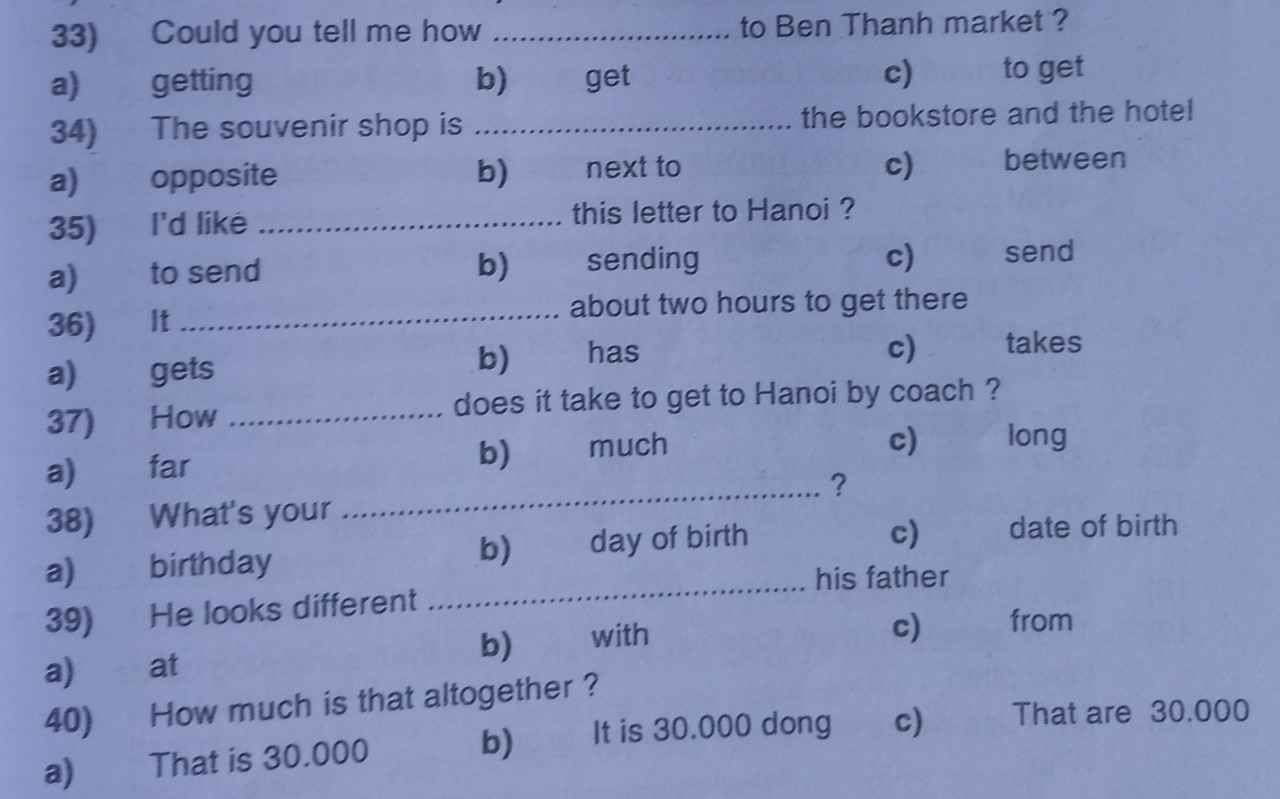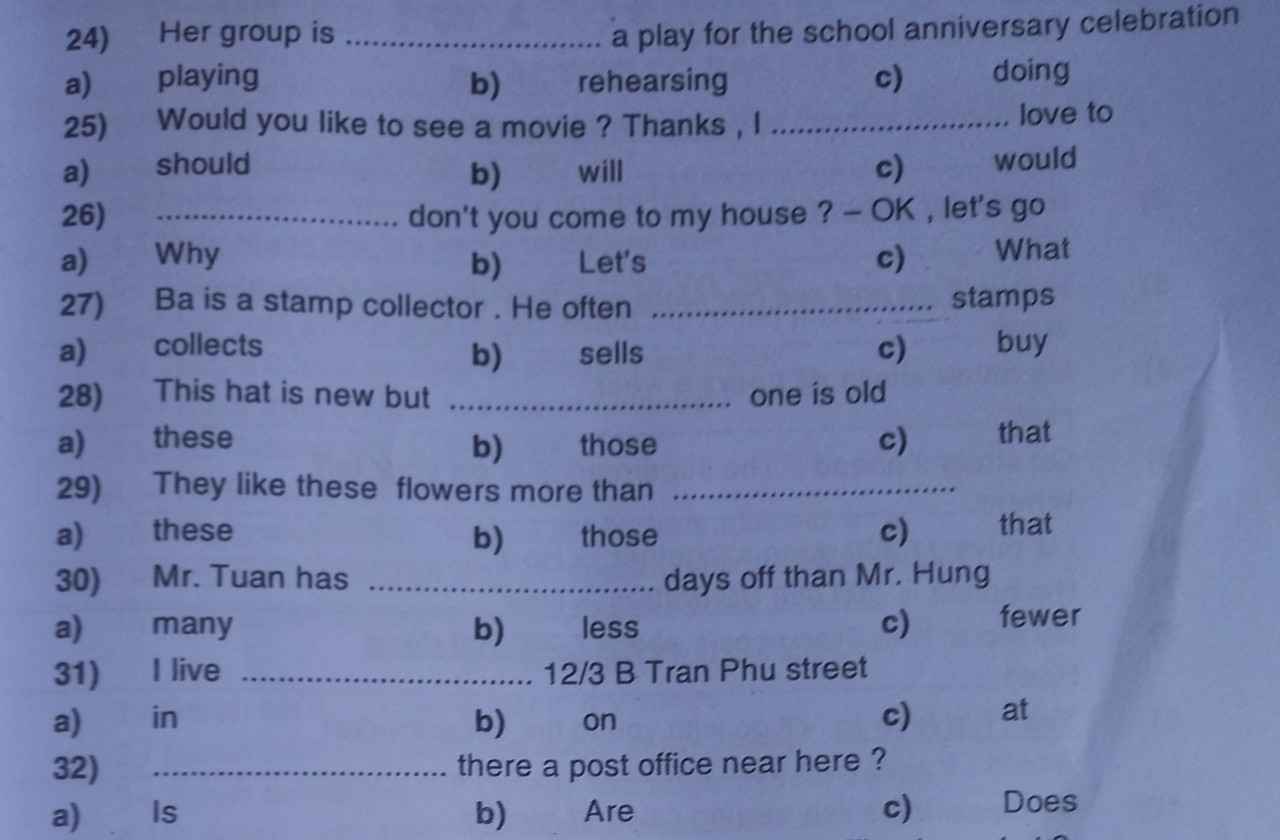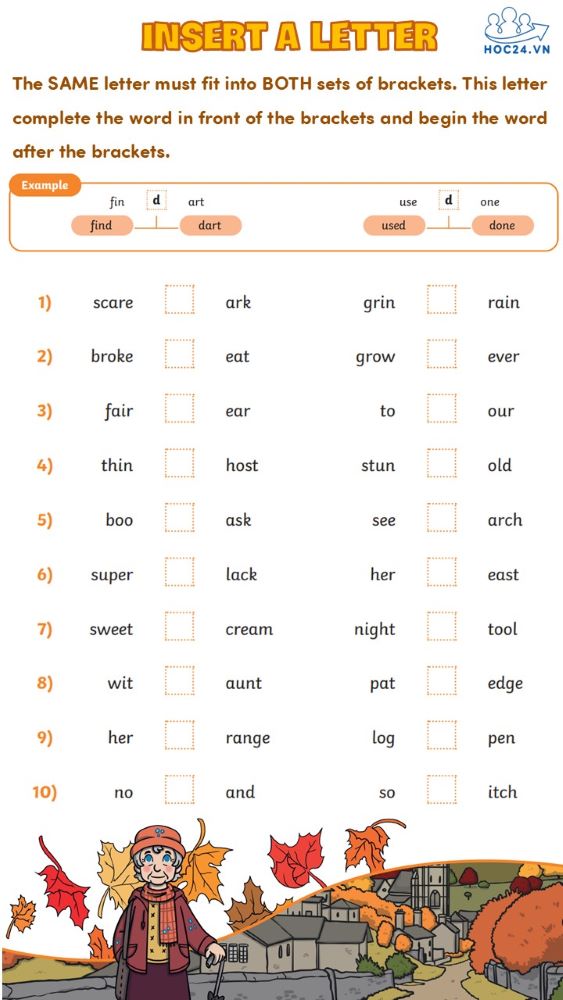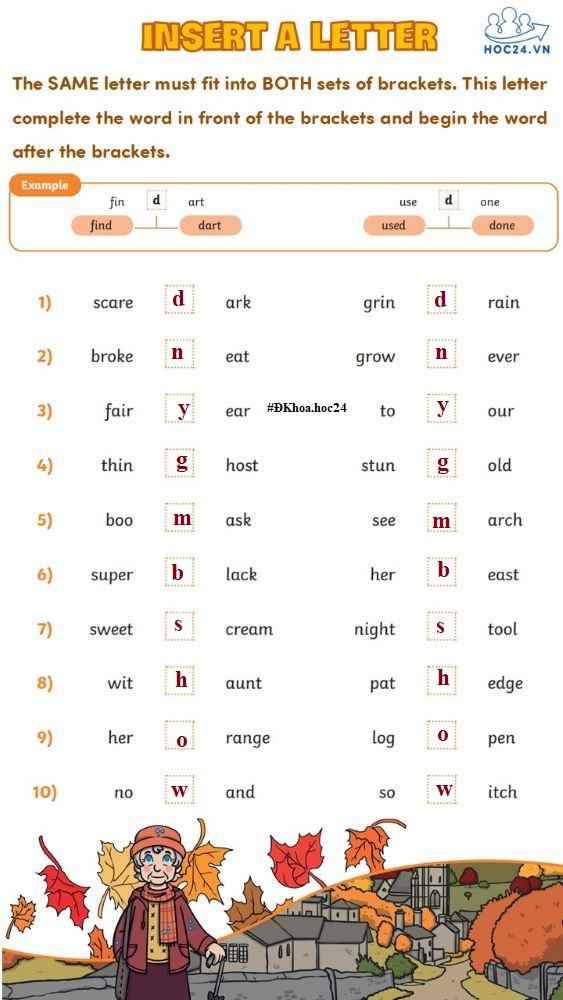❸. VOCABULARY & GRAMMAR
I. Choose the option (A, B, C or D) that best completes each of the following sentences.
1. Kathy often __________ hopscotch with her friends.
A. goes B. plays C. enjoys D. does
2. Have you ever __________ rock climbing, Fed?
A. arrived B. been C. done D. gone
3. I usually play soccer with my Dad __________ Sunday afternoons.
A. on B. in C. at D. every
4. Cristiano Ronaldo won the World Football Player of the Year __________ three times.
A. Bonus B. Prize C. Reward D. Award
5. So far the sprinter has __________ 10 medals at 2 Olympic Games.
A. won B. winning C. win C. wins
6. Michael Jordan was born __________1963 in the USA.
A. for B. at C. in D. on
7. On the high bar, the __________ swung forward.
A. winner B. boxer C. soccer player D. gymnast
8. I'm not really into outdoor activities so I __________ go jogging
A. often B. usually C. rarely D. always
9. Kate: __________ goals did the player score during his career?
Bob: 1281.
A. How long B. When C. How often D. How many
10. How did Peter feel __________ he heard someone had broken into his house?
A. because B. when C. so D. and










